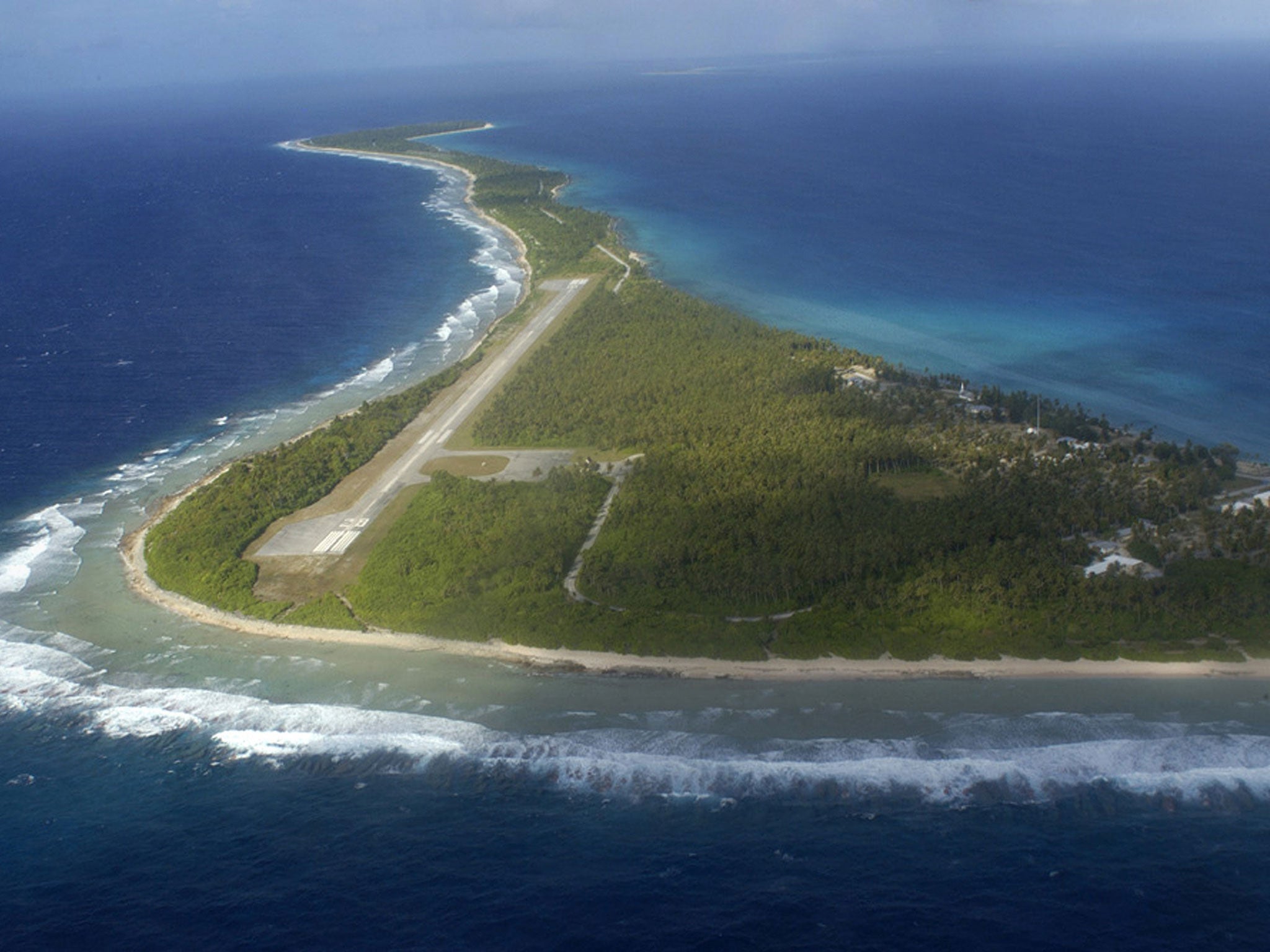Act now or rising seas will sink our country, Marshall Islanders tell the world
Senior minister from the collection of low-lying coral atolls in the north Pacific says the end of this century will spell 'the end of my country and many others like it'

The Marshall Islands, a sprinkling of coral atolls in the northern Pacific Ocean, are facing oblivion unless decisive global action is taken to combat climate change, a senior minister has warned.
Tony de Brum has been in Australia this week to try to alert his country’s larger neighbour to the plight of the Marshalls’ 55,000 citizens, living on 34 atolls just north of the Equator. With no land higher than two metres, sea level rises predicted by the end of this century would spell “the end of my country and many others like it”, he said.
The Republic of the Marshall Islands, which next month will host the annual meeting of the Pacific Islands Forum, is calling on wealthy, high-emitting nations to commit themselves to stronger action to slow the rate of temperature increase. The summit in the capital, Majuro, to which the US Secretary of State, John Kerry, has been invited, will issue a declaration calling for help to avert a “climate catastrophe”.
It was in the Marshall Islands, during the immediate post-war period, that the US tested dozens of nuclear weapons, poisoning both the land and its inhabitants. Sixty years on, the country faces being wiped off the map altogether.
Like its Pacific neighbours Kiribati and Tuvalu, and the Maldives in the Indian Ocean, the low-lying nation is acutely vulnerable to rising seas. A drought of unprecedented severity is already jeopardising livelihoods, while monster king tides have polluted the water table, killing staple crops such as taro, a root vegetable.
The impact of climate change was already being felt, Mr de Brum said. “During my lifetime, I have seen an island in the lagoon of Majuro atoll… disappear from the surface of the Earth.
“We do not have scientists measuring this, that and the other, [but] we have experienced first-hand the effects of climate change… It is not something that is down the road, or at the turn of the century.”
In May, his government declared a state of disaster in outlying islands after the prolonged drought left many people without water or food. Just as international aid arrived, Majuro was hit by a king tide which flooded homes and closed its airport. Mr Brum told a US emergency response team: “Welcome to climate change.”
Like Kiribati to the east, which has been negotiating to buy land in Fiji to grow crops, his nation is looking to its neighbours to help guarantee food security.
Mr Kerry’s predecessor, Hillary Clinton, attended last year’s Pacific Islands Forum, held in the Cook Islands – a move seen as reflecting the US’s increasing focus on its strategic interests in the Pacific.
The seven-month drought, which is forecast to continue into next year, is also threatening the island’s one export – copra, the dried-out flesh of coconuts, from which oil is extracted.
Coconuts were growing brown and shrivelled, without the water necessary to make copra, Mr de Brum said, and without copra, people in the outer islands had no cash income.
Join our commenting forum
Join thought-provoking conversations, follow other Independent readers and see their replies
Comments
Bookmark popover
Removed from bookmarks